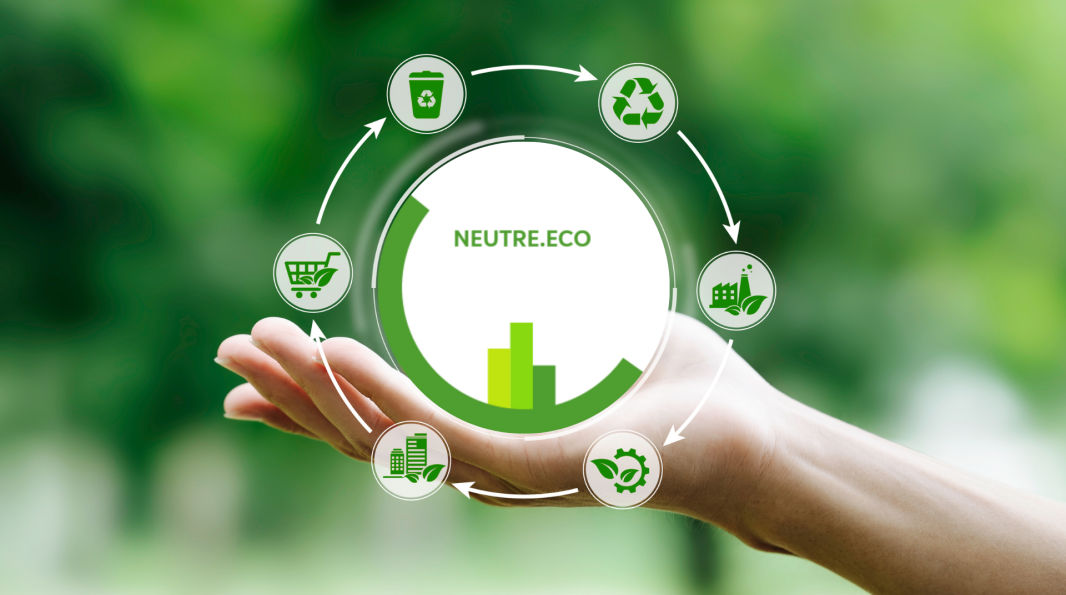Nicolas Brunn, from the DSEF (Sourcing, Economy, Finance Department), and Manon Vigoureux, from the AuRA (Auvergne-Rhône-Alpes) Trade Department, are jointly responsible for the Neutre.eco project. In September 2024, they reached a crucial milestone by entering the TEST phase of the EDF Pulse Incubation entrepreneurial programme. This third phase is crucial for validating their concept in real-life conditions. They explain to us the major challenges they will have to face in the coming months if they are to continue within EDF Pulse Incubation and reach the final phase, the LAUNCH phase.

Can you tell us more about the Neutre.eco project?
Nicolas - Neutre.eco is a platform dedicated to the environmental evaluation of products, offering three main use cases. Evaluation of purchased products, which enables buyers to score products already purchased, providing a detailed view of the environmental impact of their purchases. Comparison of suppliers‘ bids, which enables buyers to compare suppliers’ responses in terms of their environmental score when preparing a call for tenders. And finally, supplier self-assessment, enabling suppliers themselves to assess their products with a view to enhancing their environmental performance.
What lessons have you learned from the MATCH phase?
Nicolas - The MATCH phase enabled us to refine our value proposition thanks to detailed customer feedback. This feedback highlighted their need to rate the environmental performance of certain products they buy and to raise awareness of these issues among some of their suppliers. At the same time, we have fine-tuned our go-to-market strategy, in particular by establishing partnerships with platforms. These interactions with the market have enriched our business plan. The environmental rating market is still valued at over €500 million, as we analysed earlier. However, our approach to tackling it has been much more in-depth.
Manon - In this MATCH phase we had to make the project as simple as possible. Operating in an emerging environmental rating market, with historical decarbonisation players already present but whose value propositions did not meet future regulations on environmental labelling, we refined our understanding of the competition, its movements and the drivers of demand. This has enabled us to develop a product strategy tailored to this dynamic. We have also identified the key assumptions of our business (pricing, go-to-market strategy, IT costs and expertise) that will need to be validated in the next phases. The incubator's invaluable support throughout this phase enabled us to achieve our objectives and prepare for new challenges.
You've just entered the TEST phase. What are your main objectives and challenges over the next few months?
Manon - We're facing a number of challenges as we enter this new phase, but one of the most crucial concerns our target suppliers. At the moment, our offering is well developed for buyers, but we still need to refine our proposition for suppliers. As far as buyers are concerned, we need to confirm the interest of the purchasing departments of medium-sized companies and large non-industrial private groups in an environmental rating system for products. Large industrial groups and the public sector are often ahead of the game when it comes to CSR, and we need to make sure that their initiatives spread to all sectors.
Nicolas - This new phase is particularly stimulating because it allows us to develop an industrial product, sign up purchasing customers and delve deeper into the needs of suppliers. On the other hand, what links the needs of suppliers to those of buyers is technology. Our interviews show that these are two sides of the same coin.
Manon - What's more, we have a major challenge in terms of speed to market. As part of its Green Pact, Europe has passed a regulation on ecodesign for sustainable products. This regulation will be translated into a digital product passport (DPP) that will trace the environmental impact of products. It is due to come into force progressively from 2027. Our aim is to launch our product with suppliers before this date. In 2027, the competition will already be organised to meet this need, so it's crucial to build our brand image before then.
What do you think of your experience with EDF Pulse Incubation so far?
Nicolas - Personally, this experience has enabled me to grow and acquire reflexes, because we're constantly confronted with the field and external factors: you have to sell a possible solution. It's a great exercise in intrapreneurship. We're on the borderline between developing a solution and selling it. The incubator offers incredible freedom and a very wide range of actions: we're not just one cog in a larger chain, as is often the case at EDF, but we're building the chain bit by bit, being all the cogs at once.
Manon - When you're an entrepreneur, you have to be versatile. In our case, everyone brings their own experience to the table, but in the end you have to develop your skills in all areas: marketing, IS, finance, sales, legal, etc. This experience has given me an insight into the financial and legal aspects of projects that I didn't know anything about before.
How did the investors' board go, when it decided that Neutre.eco could continue in the TEST phase?
Nicolas - An investors' board lasts 1h30: 30 minutes of presentation of our project, 30 minutes of questions and answers and 30 minutes of deliberation in our absence.
Manon - This board was particularly stressful for two reasons. Firstly, it was the first time we'd come face to face with a dozen or so EDF executives to defend a project that was close to our hearts, which was naturally a bit stressful. Secondly, we've reached a stage in the project where we're moving on from a very academic phase, with boxes to tick, to a phase where we have to adopt a management mentality and develop our own vision to drive this business forward. I experienced this board as a transition from a structured environment like DIPP to a zone of total autonomy.

